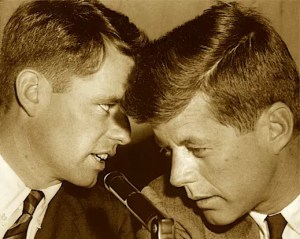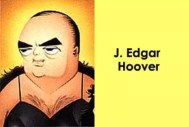BBC: To many, 40 years after his death, Martin Luther King has become a sort of secular saint. In 1968, many whites in Tennessee saw things differently. He was a rabble-rouser, an agitator, possibly a Communist. In a society built on open racial divisions, his arrival in Memphis in support of striking black sanitation workers was a source of white anger and resentment. In that very different America, not everyone was saddened by his death. Dr King died of a bullet wound to the throat just after 6pm
on 4 April. He had been standing on the balcony of the Lorraine Motel, talking to colleagues in the motel parking lot about dinner plans.
Among them, aged 26, was Jesse Jackson – later a candidate for the presidency. At this distance, he can smile with affection recalling Dr King’s last words. “I was coming across the parking lot and he said ‘Jesse – you don’t have on a tie’. I said the prerequisite for eating was an appetite, not a tie! He said I was crazy and laughed. “Then he looked at the guy who was with me, (the musician) Ben Branch, and he said ‘Ben be sure to play my favourite song tonight – Precious Lord’. And then the bullet hit him in the neck and he was killed instantly.” MORE
TIME: “Riots just don’t pay off,” said King. He pronounced them an objective failure beyond morals or faith. “For if we say that power is the ability to effect change, or the ability to achieve purpose,” he said, “then it is not  powerful to engage in an act that does not do that–no matter how loud you are, and no matter how much you burn.” Likewise, he exhorted the staff to combat the “romantic illusion” of guerrilla warfare in the style of Che Guevara. No “black” version of the Cuban revolution could succeed without widespread political sympathy, he asserted, and only a handful of the black minority itself favored insurrection. King extolled the discipline of civil disobedience instead, which he defined not as a right but a personal homage to untapped democratic energy.
powerful to engage in an act that does not do that–no matter how loud you are, and no matter how much you burn.” Likewise, he exhorted the staff to combat the “romantic illusion” of guerrilla warfare in the style of Che Guevara. No “black” version of the Cuban revolution could succeed without widespread political sympathy, he asserted, and only a handful of the black minority itself favored insurrection. King extolled the discipline of civil disobedience instead, which he defined not as a right but a personal homage to untapped democratic energy.
As a newcomer, Rutherford stood at the periphery of SCLC’s most private drama. He saw the swirling, teasing flirtations of its inner circle, and he discouraged prurient speculation about the link between Coretta’s regal suffering and King’s pursuits elsewhere. Rutherford could only guess about what he called a “double life,” marveling at burdens King must carry beyond the superhuman pressures and expectations of the movement. King’s formidable armor wore down in midlife, draining assurance from his glib mantra as a young scholar that many great men of religion had been obsessed with sex–St. Augustine, St. Paul, Martin Luther, Kierkegaard, Tillich–and his self-reproach spilled over when Coretta underwent surgery for an abdominal tumor on Jan. 24. He disclosed to her the one mistress who meant most to him since 1963–with intensity almost like a second family even though she lived in Los Angeles–a married alumna of Fisk, of dignified bearing like Coretta, but different. The result was painful disaster. On hearing the news, Juanita Abernathy, SCLC co-founder Ralph Abernathy’s wife, exploded with the fury of a trusted second that King had picked Coretta’s most vulnerable moment, just as she recovered from her hysterectomy, to ambush her sanctuary of willful, silent discretion. If he was truly desperate to be honest, she said, King should purge himself privately to God or a psychiatrist. Ralph Abernathy grew so alarmed about King’s confession that he canvassed the regular mistresses for hidden fits of jealousy or romantic blackmail, but he found no conventional clues to explain the rash new fatalism in King. Assassination threats were constant, and King had always been haunted by premonitions of a premature death, but now they seemed to intensify. MORE
hysterectomy, to ambush her sanctuary of willful, silent discretion. If he was truly desperate to be honest, she said, King should purge himself privately to God or a psychiatrist. Ralph Abernathy grew so alarmed about King’s confession that he canvassed the regular mistresses for hidden fits of jealousy or romantic blackmail, but he found no conventional clues to explain the rash new fatalism in King. Assassination threats were constant, and King had always been haunted by premonitions of a premature death, but now they seemed to intensify. MORE
CNN: The FBI’s interest in King intensified after the March on Washington in August 1963, when King delivered his “I have a dream speech,” which many historians consider the most important speech of the 20th century. After the speech, an FBI memo called King the “most dangerous and effective Negro leader in the country.” The bureau convened a meeting of department heads to “explore how best to carry on our investigation [of King] to produce the desired results without embarrassment to the Bureau,” which included “a complete analysis of the avenues of approach aimed at neutralizing King as an effective Negro leader.”
 The FBI began secretly tracking King’s flights and watching his associates. In July 1963, a month before the March on Washington, FBI Director J. Edgar Hoover filed a request with Attorney General Robert Kennedy to tap King’s and his associates’ phones and to bug their homes and offices.In September, Kennedy consented to the technical surveillance. Kennedy gave the FBI permission to break into King’s office and home to install the bugs, as long as agents recognized the “delicacy of this particular matter” and didn’t get caught installing them. Kennedy added a proviso — he wanted to be personally informed of any pertinent information.
The FBI began secretly tracking King’s flights and watching his associates. In July 1963, a month before the March on Washington, FBI Director J. Edgar Hoover filed a request with Attorney General Robert Kennedy to tap King’s and his associates’ phones and to bug their homes and offices.In September, Kennedy consented to the technical surveillance. Kennedy gave the FBI permission to break into King’s office and home to install the bugs, as long as agents recognized the “delicacy of this particular matter” and didn’t get caught installing them. Kennedy added a proviso — he wanted to be personally informed of any pertinent information.
But the long list of bugs in his hotel rooms picked up just enough about King’s love life. A decision in a 1977 court case brought by Bernard Lee, one of King’s associates, sealed the transcripts from those wiretaps until 2027. But King’s associates confirm there were at least two cases in which FBI surveillance caught King in compromising circumstances.
The first incident involved King at a party at the Willard Hotel in Washington. The FBI recorded the party and captured the sounds of a sexual encounter in the room afterwards. The second incident occurred during King’s stay in a hotel in Los Angeles, California. There, agents heard another drunken gathering in which King told an off-color joke about the recently assassinated President John F. Kennedy. Hoover sent transcripts and excerpts of those recordings to the White House and to the attorney general.
captured the sounds of a sexual encounter in the room afterwards. The second incident occurred during King’s stay in a hotel in Los Angeles, California. There, agents heard another drunken gathering in which King told an off-color joke about the recently assassinated President John F. Kennedy. Hoover sent transcripts and excerpts of those recordings to the White House and to the attorney general.
Hoover’s contempt for King’s private behavior is clear in the memos he kept in his personal files. His scrawl across the bottom of positive news stories about King’s success dripped with loathing.
On a story about King receiving the St. Francis peace medal from the Catholic Church, he wrote “this is disgusting.” On the story “King, Pope to Talk on Race,” he scribbled “astounding.” On a story about King’s meeting with the pope, “I am amazed that the Pope gave an audience to such a degenerate.” On a story about King being the heavy favorite to win the Nobel Prize, he wrote “King could well qualify for the ‘top alley cat’ prize!”
 When King learned he would be the recipient of the Nobel Peace Prize in 1964, the FBI decided to take its harassment of King one step further, sending him an insulting and threatening note anonymously. A draft was found in the FBI files years later. In it the FBI wrote, “You are a colossal fraud and an evil, vicious one at that.” The letter went on to say, “The American public … will know you for what you are — an evil, abnormal beast,” and “Satan could not do more.”
When King learned he would be the recipient of the Nobel Peace Prize in 1964, the FBI decided to take its harassment of King one step further, sending him an insulting and threatening note anonymously. A draft was found in the FBI files years later. In it the FBI wrote, “You are a colossal fraud and an evil, vicious one at that.” The letter went on to say, “The American public … will know you for what you are — an evil, abnormal beast,” and “Satan could not do more.”
The letter’s threat was ominous, if not specific: “King you are done.” Some have theorized the intent of the letter was to drive King to commit suicide in order to avoid personal embarrassment. “King, there is only one thing left for you to do,” the letter concluded. “You know what it is … You better take it before your filthy, abnormal fraudulent self is bared to the nation.” MORE
THE MYSTERIOUS DEATH OF MARTIN LUTHER KING
[googlevideo]http://video.google.com/videoplay?docid=-1193721205257426261&q=james+earl+ray&total=143&start=0&num=10&so=0&type=search&plindex=0[/googlevideo]

